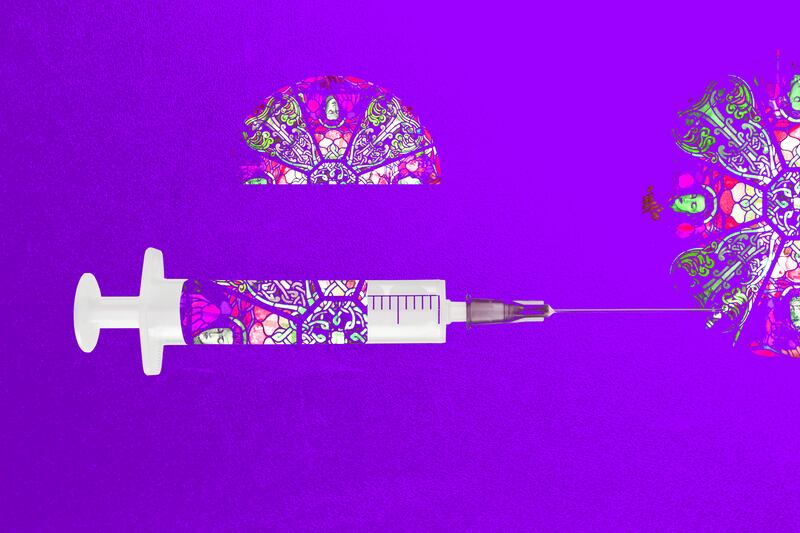Political partisanship has complicated the country’s response to COVID-19 from the beginning, so it should come as no surprise that Democrats and Republicans have different views on one of this fall’s most contentious pandemic-related debates.
New research from the Becket Fund for Religious Liberty shows that members of the GOP are much more supportive than their more liberal peers of religious exemptions to workplace vaccine mandates. Nearly 7 in 10 Republicans (68%) say businesses that choose to impose such mandates should accommodate employees with faith-based objections, compared to just 4 in 10 Democrats.
Before COVID-19, religious exemptions to vaccine policies were widely available and only rarely divisive. But, in recent months, there’s been widespread pushback against religious objectors, including in the workplace, as the Deseret News previously reported.
As companies have rolled out new vaccine mandates in response to the pandemic, some have chosen not to offer faith-based exemptions. At businesses where they’re allowed, employers sometimes view exemption requests with suspicion and ask follow-up questions about workers’ other health-related beliefs.
Becket’s survey showed that Americans, in general, are divided over what approach companies should take. Just over half (51%) of U.S. adults say businesses should not force such employees to get vaccinated, while 28% believe they should.
In addition to partisanship, the religious makeup of respondents’ workplace seemed to influence their views, researchers noted.
“Majorities of respondents with coworkers who were people of faith agreed that businesses should not impose vaccine mandates on those with religious objections, regardless of whether the mandate came from the employer or the government,” they said.
Ongoing conflict over COVID-19 vaccine mandates helps explain why many Americans’ feelings on the overall concept of religious exemptions have shifted over the course of the pandemic.
More than 1 in 4 Americans (27%) say they’re now less sympathetic to religious exemption requests. Almost the same share (24%) say they’re now more sympathetic, Becket found.
Here again, researchers identified a partisan gap.
“More than a third of Democrats said they became less sympathetic to religious exemptions over the course of the pandemic, compared to only a fifth who said they had become more sympathetic. ... Republicans who said their opinion changed moved in the opposite direction: 37% became more sympathetic to religious exemptions and 17% became less sympathetic,” Becket reported.
It’s likely that this partisan gap will continue to grow even after the pandemic ends. Democratic officials increasingly associate religious exemptions with discrimination, most notably in the LGBTQ rights context. Republican policymakers, on the other hand, present them as a core part of the country’s commitment to religious freedom.


 alt=Kelsey Dallas
alt=Kelsey Dallas